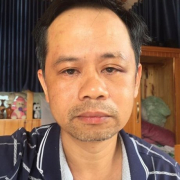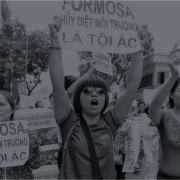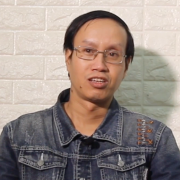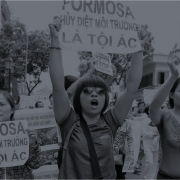Apocalypse soon? A lack of progress and participation in Vietnam’s G7-funded energy transition

Press Release
Bangkok, 9am ICT, August 15, 2024
READ THE FULL REPORT
Project88 released a new report, Apocalypse soon? Vietnam’s unjust energy transition, on Vietnam’s energy transition today. Under the Just Energy Transition Partnership (JETP), nine rich governments committed to mobilize $15.5 billion in funding. In return, Vietnam promised it would phase out coal and consult NGOs and the media when making decisions to ensure the transition is implemented in a just manner. Project88’s report concluded that, so far, all parties have failed to live up to their sides of the deal.
The rich governments funding Vietnam’s energy transition have only mobilized a fraction of the pledged money, and, instead of providing grants to the Vietnamese government, have instead committed most of the funding in the form of commercial loans.
‘Vietnam’s JETP reveals serious problems with the model that rich countries are promoting as the solution to climate change in the developing world,’ said Ben Swanton, co-director of Project88.
Vietnam, for its part, has not phased out coal. Rather, the government has prioritized energy security over the transition, opening new coal mines and dramatically increasing imports of coal. Further, instead of ensuring the public had a voice in key decisions about the transition, the government has effectively criminalized activism on energy policy by arresting six leaders of the country’s climate change movement, while criminalizing all efforts to influence policymaking and monitor the country’s compliance with international agreements, even from government insiders. In addition, as of May 2024, none of the JETP funds have been disbursed.
KEY POINTS
Vietnam’s energy transition is failing on its own terms.
- The rich countries financing Vietnam’s Just Energy Transition Partnership have only committed a fraction of the promised funding in the form of grants—the lion’s share comes in the form of commercial loans that risk putting Vietnam into debt. Other JETP countries are facing similar financing problems.
- Only 2% of the $15.5 billion in funding initially promised has been committed as grants. $12 billion of the $15.5 billion will come in the form of loans at market rates, which Vietnam is reluctant to accept.
- Hanoi has prioritized energy security over transitioning away from fossil fuels.
- There is little transparency regarding how decisions about the energy transition are being made and the Vietnamese public has been shut out of the decision-making process.
Vietnam does not want a just energy transition.
- In July 2023, Vietnam’s senior leaders issued Directive 24, which seeks to ensure there is no foreign influence in policymaking and lays bare a plan to control efforts by activists to shape state policy and promote legal reform.
- Prime Minister Pham Minh Chinh reportedly vetoed a proposal to establish a working group to discuss questions of justice relating to the transition.
- Hanoi has imprisoned six leaders of the climate movement and has effectively criminalized energy policy activism, creating a climate of fear surrounding policy activism that has made members of Vietnamese civil society unwilling to take part in policy activism.
- Billions of dollars in foreign aid, including climate funding, have been held up in recent years. As of May 2024, no JETP funds had been disbursed.
Following the arrests of climate activists, the JETP was weakened.
- In November 2023, Vietnam and its partners announced the Resource Mobilisation Plan, which details the funding sources for the JETP and specifies which projects will be part of Vietnam’s energy transition. In the RMP, both the Vietnamese government and the funders of Vietnam’s JETP backtracked on obligations agreed upon in the initial Political Declaration.
Vietnam’s JETP is a microcosm of a broader failure to achieve progress on climate action. The COP28 Global Stocktake—the process for countries and stakeholders to assess progress toward meeting the goals of the Paris Agreement—allowed for the continued use of fossil fuels and reached no firm commitment for a universal phase-out of coal, oil, and gas. Moreover, the deal does not acknowledge the responsibility of rich countries for climate change nor the responsibility of the rich countries to shoulder the burden of implementing energy transitions in poorer countries. Under these circumstances, it is no surprise that Vietnam’s energy transition is in jeopardy.
‘This energy transition provides an opportunity to improve the lives of the Vietnamese people,’ said Michael Altman-Lupu, Human Rights Researcher at Project88. ‘But the transition cannot be just so long as the public is excluded from participating in key decisions about how the transition is designed and implemented.’
Project88’s report shines a critical spotlight on energy transition deals that are being promoted by rich countries as the solution to climate change in the developing world.








